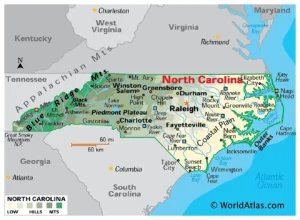There is a problem in America today. We used to be a nation priding ourselves on our patriotism, our people, and our power. For better or for worse, the United States emerged out of years of isolation in the new world as a global superpower after the Second World War. We faced off against the Soviet Union in a grand global chess match in which we were victorious, not because of our military might, but because our adversary made fatal mistakes on their own home front. Yet despite winning the “war,” we have not won the peace. Our enemy this time is not a communist superpower nor is it Islamic fundamentalists despite what you may see on the news. No, our enemy is national apathy.
Apathy is defined as a lack of interest, enthusiasm, or concern. Most of the time this takes place on the individual level, like with schooling or just being apathetic towards political matters. Yet over the past two decades, we have seen apathy take a collective form among mass sections of the population that is directed against the nation itself. Hence, we have a pandemic of too many people not caring about the nation or the state of it. I must be clear: this national apathy did not come about all of a sudden. This is not something that only popped up in the past year or the year before that. Our national apathy has been in the making for a very long time, and no one person is responsible for it. The problem comes when our leaders and people fail to understand that national apathy exists and thus hardly does anything to combat it.
I will preface what I am about to say with the fact that I am only 24 years old, so some of my older audience may have disagreements about this, but I am going to say it anyhow based upon observations I have had about our historical eras. I argue that the golden age of America started after the Civil War and lasted until the 1980s. Other than Reconstruction, the post-Civil War era was marked by booms in manufacturing, territorial expansion, populism, and technological development. We managed to build a canal through Panama. The assassination of William McKinley by an anarchist led to the rise of one of our best Presidents, Theodore Roosevelt, whose progressive (actual progressivism, not modern woke nonsense) leadership combatted monopolies, weeded out corruption, and encouraged environmental conservation. Much of his platform would be moved to the Progressive Bull Moose Party, rebranded as “New Nationalism.”
Our country would see a late entry and ultimate victory in the First World War, which led to our roaring twenties. This would see great advancement in our financial power, at least until the Great Depression, which we would finally see the end of due to the war economy that we developed during World War Two, which helped demolish the Axis alliance. Yet again, our entry would be late, but after our ultimate victory, we unexpectedly became a world superpower due to being relatively untouched by the war, in comparison to our European allies that suffered enormous economic and social damage. We were not alone in this endeavor, however. Joseph Stalin’s USSR, despite also suffering with losses in the millions, ended up with control of much of Eastern Europe. Our country was once again faced with a competitor, and eagerly undertook a near half century challenge which we ended up winning. Yes, the late 19th-20th centuries was the high point of Americanism.
Yet despite this high point, the seeds of national apathy were planted. I would argue that this seed was planted and firmly took root in the 1960s. So many social movements popped up which encouraged people to think of themselves beyond the nation. This would have been nothing had many of these people not went on to serve in our institutions and politics. Yet they did, and in turn they sowed the seeds for what would become the woke movement that we are dealing with in the 21st century. When a nation’s politicians, influential people, and upper class all come to this consensus that America as a nation does not matter, and it is just a patch of land that people just happen to live on, it decays the foundation of the nation.
Let us fast forward to the 1990s. The USSR lay shattered, communist regimes in Eastern Europe had been removed, and we were the sole superpower. This should have been it. As our main adversary was gone, we should have been able to take a step back from the world and focus on fixing internal problems. We should have made it so that the EU would be able to keep the peace in Europe without our help, and allowed Japan to enhance its military capabilities to act as the allied power in Asia. We did not do this. Instead, we allowed Europe to continue to leech off of our military power for defense while they were able to develop their massive welfare states (which they then have the nerve to criticize us for not having reliable social safety nets). We fought their wars in former Yugoslavia. We then spent the next three decades running after terrorists in the Middle East, and it looks like we might spend the rest of this decade doing that too.
While this happened, we antagonized the new Russian state (which initially was willing to become a part of our world order, see Boris Yeltsin) to the point where they decided that a New Cold War would be preferable if it meant that Russia could be kept strong. We spent billions of dollars trying to rebuild Afghanistan only for it to fall back to the way it was after over 20 years of effort. The same thing may very well soon happen to Iraq, not under Hussein, of course, but a different form of anti-Americanism.
So, while we were committing to all of these foreign adventures over the past three decades, surely we were also building a strong foundation among the people for which we could fall back upon should we find ourselves in a pickle? If you thought so, you would be wrong. Since the mid 2010s, America has been in the middle of a struggle against self-hating ideologies which almost half of the population subscribe too. Ideologies which state that we should be ashamed of our history, our race, and our achievements. At the same time, we have imported large amounts of people who have no ties to this nation and couldn’t care less about it as long as they are allowed to occupy space for themselves. Our government, when they are not going on foreign adventures, treats our country as an economic zone and not a nation. At best lip service is paid to cultural issues but little to nothing is done to fix them. Aside from the anti-civilizational ideologies wrecking havoc in the social sphere, there is this sense that the central government doesn’t really care about the people. All of this combined creates an atmosphere where people don’t believe that they have a stake in the nation, and thus should move from caring about the country to caring about their individual desires. Now, I am not advocating for the elimination of individual desire, that is impossible. What I do believe is that there should be a balance between individual desire and the collective good of the nation. To tilt this balance too much in either direction opens us up to either anarchism (tilted too much to individualism) or totalitarianism (tilted too much towards the collective nation).
In order to combat this national apathy, there needs to be a major change in the current state of US policy. We need to start focusing inward, and purge ourselves of anti-civilizational ideologies while making our civilization one worth living under. Our economy must be reformed into one serving the nation and the people, not the whims of the global financial class. Foreign influences and lobbyists must be uprooted and expelled so our government (both central and local) no longer has any reason to invest anywhere else other than in America. Our demographics must be stabilized. A New Nationalism for the 21st Century must be enacted. I fear that if our country continues on this self-destructive path that we will splinter in a far worse way than the Soviet Union did over thirty years ago.
Oceanus








